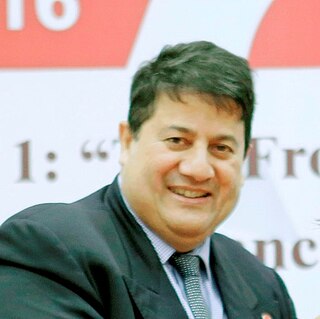Books/Chapters in Books
Clark, Peter and Mills, Roger W., 2013. Masterminding the Deal. Kogan Page.
Mills, Roger W., 2007. Financial Statement Analysis and Corporate Finance, Books 1 and 2, Value Focus Publishing.
Mills, Roger W., 2007. Corporate Finance – A Managerial Perspective, Value Focus Publishing.
Mills, Roger W. with Print, Carole F., 2006. Business Finance and Accounting, Value Focus Publishing.
Mills, Roger W. with Print, Carole F., 2006. Managerial Finance, Shareholder Value and Value Based Management. Value Focus Publishing.
Robertson, J. and Mills, Roger W., 2000. Accounting Principles for Non-Accounting Students. Mars Business Associates Ltd.
Mills, Roger W. with Print, Carole, F. and Rowbotham, Sean A., 1999. Managerial Finance, Shareholder Value and Value Based Management. Mars Business Associates Ltd.
Mills, Roger W., Robertson, John with Print, Carole, F. and Rowbotham, Sean A., 1999. Fundamentals of Managerial Accounting and Finance. Mars Business Associates Ltd.
Mills, Roger W., Shareholder Value Analysis – Its Use in Measuring Value Creation, FMAC 1999 Theme Booklet, IFAC, April 1999
Mills, Roger W., 1998. The Dynamics of Shareholder Value: The Principles and Practice of Strategic Value Analysis. Mars Business Associates Ltd.
Mills, Roger W., 1998. Understanding and Using Shareholder Value Analysis. In Ambrosini, V., with Johnson, G. and Scholes, K. (Eds.) Exploring Techniques of Analysis and Evaluation in Strategic Management, pp 229–244, Prentice Hall.
Mills, Roger W., 1997. Internal Control Practices within Large UK Companies. In Keasey, Kevin and Wright, Mike (eds.) Corporate Governance: Responsibilities, Risks and Remuneration, Wiley & Sons
Mills, Roger W., 1994. Strategic Value Analysis. Mars Business Associates Ltd.
Mills, Roger W. and Stiles, J., 1994. Finance for the general manager. Henley-McGraw Hill series.
Mills, Roger W. and Robertson, J.D.A., 1990. Fundamentals of Management Accounting and Finance. Mars Business Associates, (first published in 1990 — adopted by over 20 MBA courses as core reading material).
Handbooks, MBA Workbooks
Mills, Roger W., Strategic Planning, chapter in Financial Management Manual update series published by Accountancy Books.
Mills, Roger W., Cost Accounting, chapter in Practical Financial Management, update series published by GEE Publishing Ltd.
Mills, Roger W., Print, Carole F., Ewers, D., Editors, Handbook of Cost Management, published by GEE Publishing Ltd.
Mills, Roger W., Print Carole F., Ewers, D., Parker, D., HMC Workbooks, Managing Financial Resources Modules 1—4 (2000).
Mills, Roger W., Print Carole F., Ewers, D., with contributions from Marcin Peksyk and David Parker. Strategic Direction Workbook: Finance – Strategic Financial Analysis, Prepared by the Accounting and Finance Faculty (2001)
Selected articles
Mills, Roger W., Favato, G. and Weinstein, W. L., 2006. Using Scenario Thinking to Make it Relevant to Managers: A Case Study Illustration, Journal of General Management, Vol. 31, No. 3, Spring, pp. 49–74.
Weinstein, W.L., Blacker, K.B., Mills, Roger W., 2005. Can your Board Really cope with risk?” IFAC Articles of Merit, August, pp. 48–52.
Mills, Roger W., 2005. Assessing Growth Estimates in IPO Valuations —A Case Study, Journal of Applied Corporate Finance, Winter, Vol. 17, No. 1, pp 73–78.
Mills, Roger W., 1998 How do you value a start-up company? – The flotation of OrangeTM. Long Range Planning. Vol. 31 No. 1, June, pp 446–454.
Mills, Roger W. and Weinstein, Bill, 1996. Calculating Shareholder Value in a Turbulent Environment. Long Range Planning, Vol. 29 No. 1, pp 76–83.
Mills, Roger W. and Chen, Gordon., 1996. Evaluating International Joint Ventures Using Strategic Value Analysis. Long Range Planning, Vol.. 29 No. 4, pp 552–561.
Mills, Roger and Chen, Gordon., 1996. Evaluating Chinese Joint Venture Opportunities Using Strategic Value Analysis. Journal of General Management, Vol. 21 No. 4, Summer, pp 31–44.
Bear R., Mills, Roger W., Schmid Felix., 1994. Product costing in advanced technical environments. Management Accounting. Vol. 72, No. 11, December, pp 20–22.
With Dimech Debono J., Dimech Debono, V., 1994. Euro Disney: A Mickey Mouse Project? European Management Journal, Vol. 12 No. 3, September, pp 306–314.
With Syamal, K. Gosh., 1994. The Role of Strategic Value Analysis in European Privatisation Decisions. European Management Journal, Vol.12 No. 2, June.
Mills, Roger W., 1992. Cash: The Key Driver of Shareholder Value. The Treasurer, April, pp 7–12.
With Cave, M., Trotter, S., Lever, K., 1990. Cost Allocation and Regulatory Pricing in Telecommunications; A UK case study. Telecommunications Policy, December, pp 505–520.
Mills, Roger W. and Cave, Martin., 1990. Cost Allocation in Regulated Industries, Public Finance Foundation, CRI Regulatory Brief No. 3.
Mills, Roger W., Kennedy, Alison, J., 1990. The Post Completion Audit of Capital Expenditure Projects. Management Accounting Guideline. Chartered Institute of Management Accountants (CIMA), December.
Mills, Roger W., 1988. Measuring the Use of Capital Budgeting Techniques with the Postal Questionnaire; A UK Perspective. Interfaces, September—October, pp 81–87.
Mills, Roger W., 1988. Capital Budgeting — The State of the Art. Long Range Planning, Vol. 21 No.4, August, pp 76–81.
Mills, Roger W. and Robertson, J., 1988. Company Failure or Company Health?— Techniques for Measuring Company Health. Long Range Planning, Vol. 21 No. 2, April, pp70–77.
Mills, Roger W. and Sweeting, C., 1988. Pricing decisions in practice: how are they made in UK manufacturing and service companies?. The Chartered Institute of Management Accountants, Occasional Paper Series.
Mills, Roger W., 1988. Capital Budgeting Techniques used in the UK and the USA. Management Accounting, pp 26–27.
Mills, Roger W. and Herbert, P.J.A., 1987. Corporate and Divisional Influences in Capital Budgeting. The Chartered Institute of Management Accountants, Occasional Paper Series.








